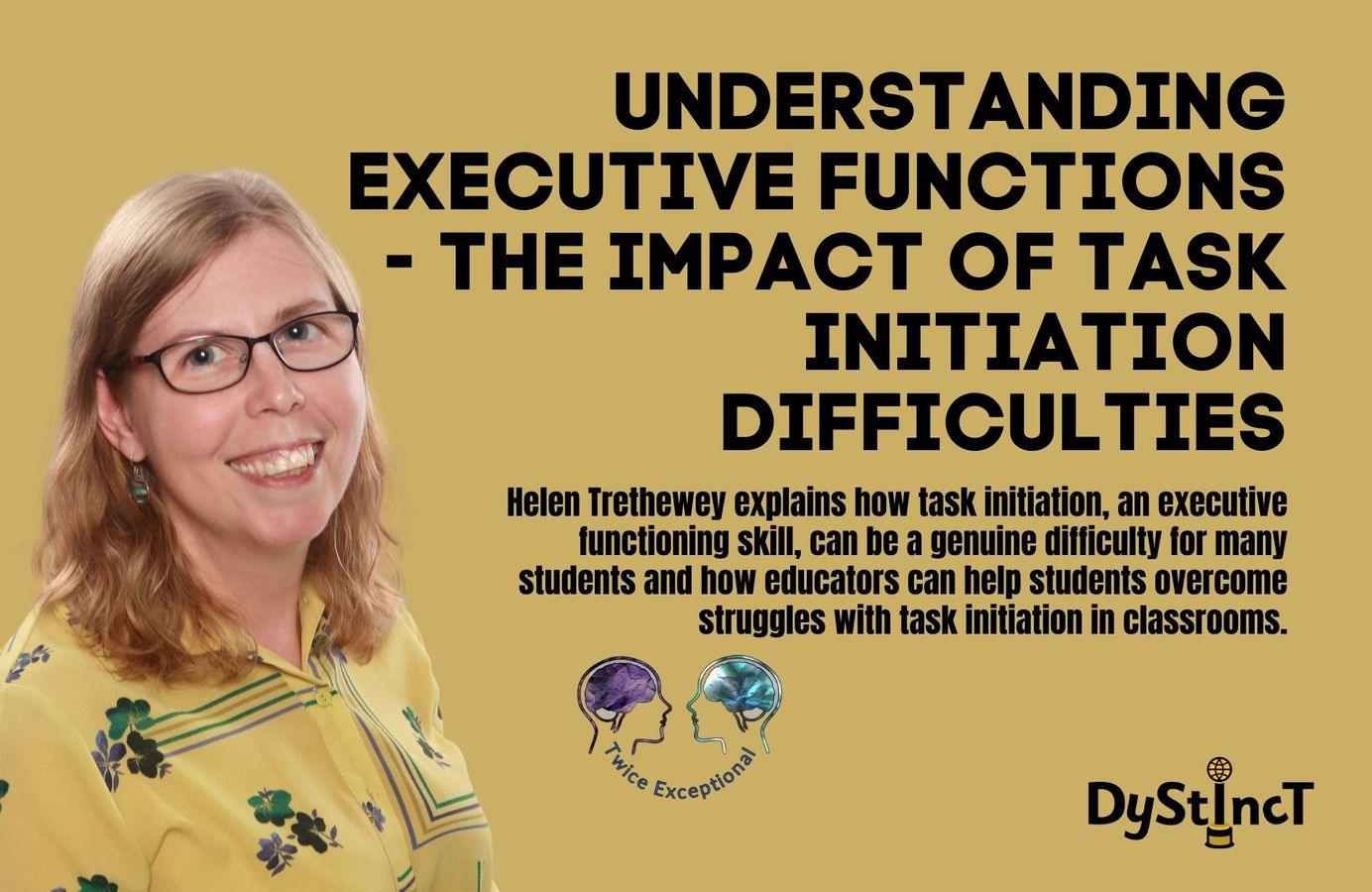
Issue 14: Understanding Executive Functions - The Impact of Task Initiation Difficulties | Helen Trethewey
Helen Trethewey explains how task initiation, an executive functioning skill, can be a genuine difficulty for many students and how educators can help students overcome struggles with task initiation in classrooms.
Success in school and in life depends as much on our executive functioning as on our academic ability and knowledge of different subjects and skills.
Good executive functions are vital to both children and adults for navigating our daily lives. Executive functions develop slowly throughout childhood, and research has shown that they may not be fully developed until around the age of 25. However, they do not always develop evenly, and for people with a learning difference, like dyslexia or ADHD, some areas can be underdeveloped. This can be confusing for both parents and teachers when a bright student struggles with organisational skills, emotions, or just remembering where they left their coat!
So, what are executive functions?
There are thought to be eight key areas:
- Impulse control
- Emotional control
- Flexible thinking
- Working memory
- Self-monitoring
- Planning and prioritising
- Task initiation
- Organisation skills
The importance of these key skills can often be underestimated and overlooked, but they can make such a huge difference to everyday life and performance at school. All these skills can be taught and developed over time with the right support.
In my experience, task initiation is an area that is rarely talked about. If it is discussed, the comments made show a lack of understanding that it is a genuine difficulty. For many teachers, it seems that some students simply do not try hard enough, and they find it puzzling when a student does not just get on with the assigned work. Parents may also experience this at home when they ask their children to complete a task. But then nothing happens, even though they know their child is capable. Task initiation is when a person knows what to do but simply cannot get started. We believe that if a task is clearly explained and the person has prior knowledge and skills, they should be able to complete it independently. However, some students simply cannot start a task without further assistance from a parent, teacher or peer. This is not due to a lack of understanding or motivation but because their brain does not know the first step to take. There can also be an element of anxiety and difficulties with working memory, planning, and prioritising. Not being able to sequence or track the different aspects of a task, along with not being able to work out which parts are most important, can make a task overwhelming. For those with ADHD, there is the added complication that the chemicals needed to make connections in the brain are not released when a task is "low interest" or not engaging.
This post is for paying subscribers only
SubscribeAlready have an account? Log in


